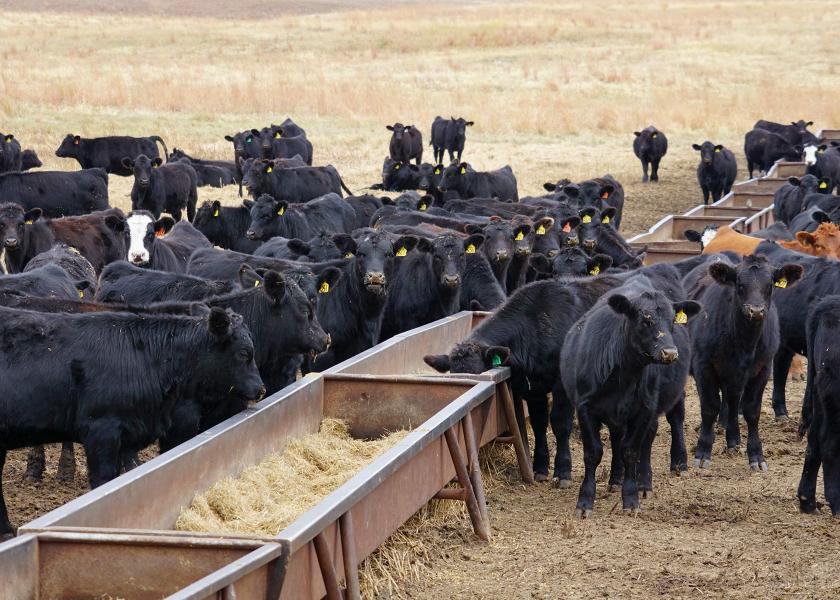Cattle Market Reform Bills Advance in Senate

The Senate Agriculture Committee on Wednesday advanced two bills aimed at making cattle markets more transparent and competitive.
The Meat and Poultry Special Investigator Act of 2022, and the Cattle Price Discovery and Transparency Act of 2022 were both passed out of committee and prepared for floor action. Senate Agriculture committee chairwoman Debbie Stabenow (D-MI) said, “These bills will make progress toward a more competitive, transparent, and fair supply chain that is better for American farmers and better able to keep food on all our tables.”
Last week the U.S. House passed its version of the special investigator bill, which was opposed by the North American Meat Institute, National Cattlemen’s Beef Association, National Pork Producers Council and National Chicken Council.
A press release issued by Chuck Grassley (R-IA) hinted at the Senator’s delight as he proclaimed, “With the passage of these two important bills, my years-long beef with Big Cattle is one step closer to being settled. Iowa cattle producers have struggled to receive a fair price for years – long before inflation hit a 40-year high. It’s past time for Congress to stand with independent cattle producers and put an end to the cozy relationship between large meat packers and big cattle feedlots.”
Grassley offered an amendment to the Special Investigator Act to ensure the assigned investigator is a senior level USDA career staff person and not a political appointee. The amendment passed unanimously.
The Cattle Price Discovery and Transparency Act passed on a voice vote with only two recorded no votes, according to Deb Fischer (R-NE).
“The broad support reflects the importance of restoring market fairness so that every segment of the cattle supply chain can succeed,” Fischer said.
The Cattle Price Discovery and Transparency Act, however, was opposed by both by NCBA and the North American Meat Institute. NCBA said the proposal would subject every cattle producer in the country to a business-altering government mandate.
“Congress is instituting a one-size-fits-all policy that will hurt cattle producers’ livelihoods. Cattle markets are finally returning to normal after pandemic-fueled uncertainty, but these heavy-handed mandates will stifle innovation and limit marketing opportunities,” said NCBA Vice President of Government Affairs Ethan Lane.
Julie Anna Potts, President and CEO of the Meat Institute, said in a statement, “The Grassley-Fischer bill being marked-up in the Senate Agriculture Committee this week will cost producers in the largest cattle producing region millions of dollars, and producers around the country will lose the ability to market their cattle as they choose.”
The Cattle Price Discovery and Transparency Act was sponsored by Fischer, Grassley, Jon Tester (D-MT) and Ron Wyden (D-OR).
The updated bill would:
- Require the Secretary of Agriculture to establish 5-7 regions encompassing the entire continental U.S. and then establish minimum levels of fed cattle purchases made through approved pricing mechanisms. Approved pricing mechanisms are fed cattle purchases made through negotiated cash, negotiated grid, at a stockyard, and through trading systems that multiple buyers and sellers regularly can make and accept bids.
- Establish a maximum penalty for covered packers of $90,000 for mandatory minimum violations. Covered packers are defined as those packers that during the immediately preceding five years have slaughtered five percent or more of the number of fed cattle nationally.
- The bill also includes provisions to create a publicly available library of marketing contracts, mandating box beef reporting to ensure transparency, expediting the reporting of cattle carcass weights, and requiring a packer to report the number of cattle scheduled to be delivered for slaughter each day for the next 14 days. The contract library would be permanently authorized and specify key details about the contents that must be included in the library like the duration of the contract and provisions in the contract that may impact price such as schedules, premiums and discounts, and transportation arrangements.
Click here to read the bill text.
Click here for an one-pager on the bill.
Click here for an updated section-by-section summary of the bill.







